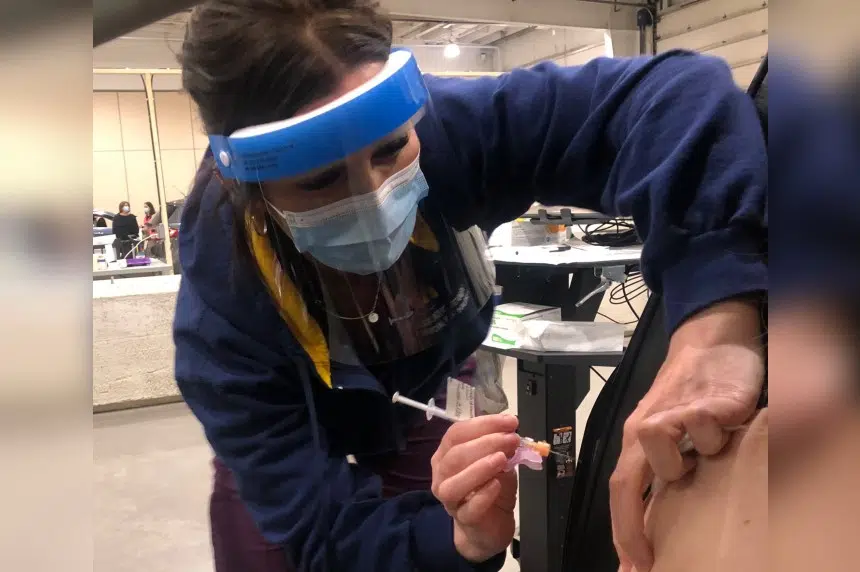A Saskatchewan epidemiologist studying COVID-19 trends is calling Saskatchewan’s slowing vaccination numbers unsurprising.
With up to 25 per cent of the population representing people who are either hesitating or refusing to roll up their sleeves, Dr. Nazeem Muhajarine said the dip in first-dose vaccinations was always approaching.
“We are kind of hitting a wall there,” Muhajarine said. “We have to do more to convince those people who are sitting on the fence to roll up their sleeve and get that first shot.”
Muhajarine is the principal investigator on the Social Contours and COVID-19 Survey, which has been operated by the Saskatchewan Population Health and Evaluation Research Unit (SPHERU) since May of 2020.
In its latest survey round ending on this past May 2, 84.4 per cent of respondents said they were prepared to get a vaccine when eligible.
That number has fluctuated in recent months but averages out to around 75 per cent.
In the same survey round, 4.5 per cent of respondents said they were hesitant to get a vaccine while an additional 11.2 per cent said they would refuse one outright. Those figures typically register at a 10 per cent hesitancy rate and 14 per cent refusal rate since recording began.
“We’ve kind of hit that point now,” Muhajarine said.
According to the latest vaccination numbers Wednesday, 2,668 people were jabbed with their first dose, representing a 70.4 per cent drop compared to 30 days prior when 9,008 people received the first dose.
Comparatively, 9,860 second doses were administered Wednesday.
Health Minister Paul Merriman still says vaccine uptake has been very good in the province. He doesn’t attribute the slowdown to vaccine hesitancy or refusal, but instead to a successful rollout and warm weather.
“The weather is getting nicer (and) we’re getting into a lower age demographic that is working,” Merriman said Tuesday about the expected slow uptake at this point of the vaccine rollout.
Muhajarine is hopeful the province will abandon its narrative of rollout celebration as other provinces begin to surpass Saskatchewan’s first-dose efforts.
“We are lagging now,” Muhajarine said. “Why? Because I think the messaging has been almost ignoring that we still have a pandemic to contend with.”
Rather than ignore incentives for unvaccinated people, Muhajarine wishes the province would instead target eligible people yet to book an appointment since available data shows men, marginalized populations and people in the southwest part of the province are most hesitant to be vaccinated.
The latest round of the survey also shows a direct connection between vaccine refusal and those ignoring masking and social distancing guidelines.
Of men who reported scarcely practising mask-wearing, 55 cent said they will refuse the vaccine. Of women in that same category, 39 per cent said so.
All measures and restrictions currently in place could be lifted as early as July 11 if 70 per cent of people 12 and older receive at least one dose by June 20.
As of Wednesday, 65 per cent of that group had been vaccinated.
With that goal beginning to look unlikely, Muhajarine said the messaging from the province isn’t sending more people to vaccination clinics.
“In a way, what we are saying is that we are encouraging vaccine hesitancy and refusal because we have seen it is the same people who do both of those things,” Muhajarine said.
So far, 10,627 respondents have contributed to the Social Contours and COVID-19 Survey.











